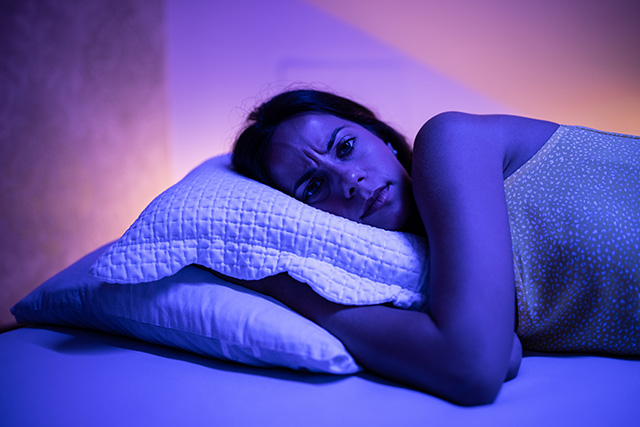POV: It’s 2 AM and you’ve been awake for over an hour. You are tossing and turning and can’t get back to sleep.
We’ve all been here before and, in fact, occasionally struggling to fall or stay asleep is normal. Sleep problems are considered to be insomnia only when they become persistent and interfere with daily functioning.
While we have previously gone into depth on the benefits of Cognitive Behavioral Therapy for Insomnia (CBT-I), it is also useful to have a quick reference of things NOT to do when you are tossing and turning and wishing for sleep in the middle of the night.
DON’T stay in Bed
This can sometimes be a little confusing. When we wake up in the middle of the night and can’t fall back asleep, we assume that staying in bed is the best plan. But actually the opposite is true. The reason is that difficulty falling asleep often becomes associated with the bed and we really want the opposite. We want our sleep cues to strongly link the bed to sleep and falling asleep. So, if you find yourself spending more than 15 or 20 minutes awake in bed in the middle of the night, get up and go to another room. A chair in a dim lit room works well and reading a book can help. Go back to bed only when you feel drowsy again.
DON’T drink too much Alcohol
Here is another recommendation that can seem contradictory. If alcohol makes you feel drowsy or relaxed, it may actually assist in helping you fall asleep. The trouble with drinking alcohol when you have insomnia is that you will often experience sleep disruptions later in your sleep cycle. As liver enzymes metabolize the alcohol during the night and the blood alcohol level decreases, you are more likely to experience sleep disruptions in addition to an overall decrease in sleep quality.
DON’T drink too much Caffeine
Avoiding too much caffeine, especially in the afternoon, is a standard sleep hygiene recommendation. Caffeine is a stimulant and can keep your brain and body wired even when you want to rest. There is also a negative cycle that can occur of consuming too much caffeine to try to make up for lack of sleep, causing more sleep problems in the long run.
DON’T look at Electronics
Mindlessly scrolling your phone in the middle of the night is one of the first things our patients tell us they do when they can’t sleep. But this habit will hurt your chances of falling back asleep. Electronics send a message to the brain to “pay attention” and “stay alert.” A primary culprit is the blue light exposure which suppresses melatonin, the hormone that tells the body it’s time for sleep. If you are struggling to stay asleep at night, it is best practice to remove your phone and other electronics from the bedroom.
So, if you find yourself having a hard time staying asleep tonight, just remember B.A.C.E. to get back to sleep!

